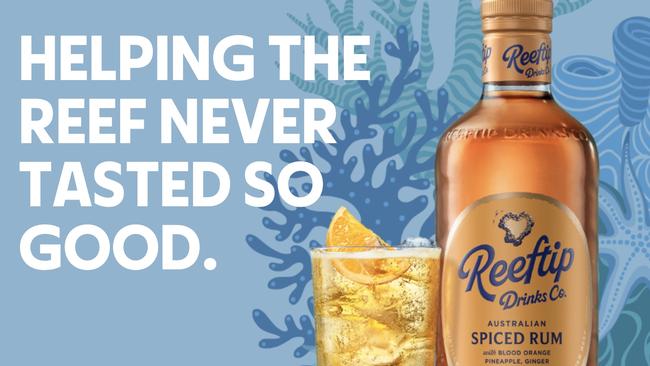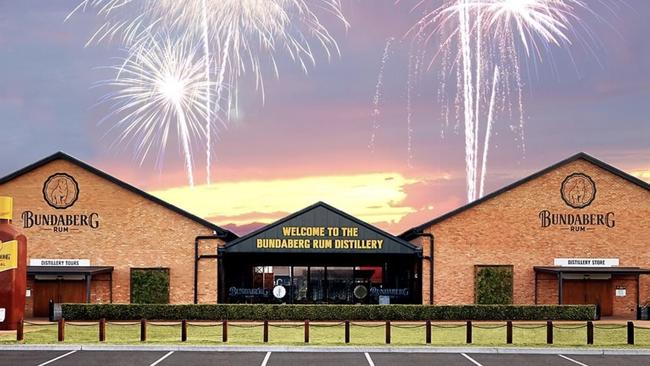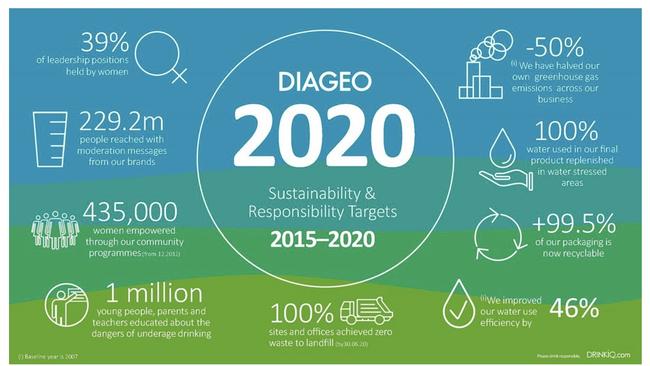Get ahead to survive – Diageo’s Reeftip rum marketer raises a glass to brand’s new world ways
Every brand must take firm steps to mitigate their impact on the environment and appeal to the more conscious-driven consumer – or run the risk of “fading away into irrelevance”.

Whether you’re a 200-year-old company or a fledgling start-up, every brand must take firm steps to mitigate their impact on the environment and appeal to the more conscious-driven consumer – or run the risk of “fading away into irrelevance”.
However, before shouting from the rooftops about making the planet a better place, Reeftip Drinks Co founder Hayden Abercrombie said brands must beware the iceberg model and get the fundamentals right below the waterline to avoid being cast into a mere greenwashing heap.
Launched in September, the Diageo-owned Reeftip rum brand donates 10 per cent of its profits to the Coral Nurture Program, which builds the resilience of the Great Barrier Reef.
Head of innovation at Diageo Australia at the time of the launch, Mr Abercrombie said the creation of the premium rum wasn’t just in response to the rise of the more conscious-driven consumer and the lack of portfolio product in this area, but was also driven by his own moral compass and passion for the cause.

“It’s not often that you are sitting in the lead chair of new product development for one of the biggest drinks companies in the world and I wasn’t going to waste the opportunity,” the Sydney-based exec said.
With a mission fit for business, fit for the consumer and ticking the box of something he was personally passionate about, in less than a year Reeftip has already supported the planting of more than 13,000 corals across Coral Nurture Program reef sites.
Reeftip has become the second fastest growing brand in spiced rum, which as a category is growing at 6.9 per cent. Delivering on two major category growth drivers of being “authentic and local” and “discover and excite”, as well as the major macro consumer trend for supporting sustainable brands, financial year to date Mr Abercrombie said it was now the fourth biggest brand within spiced rum RTD with a 2.9 per cent share.
Mr Abercrombie, who has since moved into a head of marketing of whisky role, while still being across Reeftip, worked closely with its ad agency Leo Burnett on elements such as the website, social and out of home ad campaigns, but he’s keen for the brand’s advertising to grow just as sustainably as the business.

“Rather than just going out there high, wide and handsome in the traditional way of slapping an outdoor ad on every panel in the country and running TV across every station, we were really focused around consciously building the brand in geographical places where it’s most likely to land and have the greatest impact,” he said.
Avid surfer and ocean lover Mr Abercrombie said he had no doubt that initiatives such as this would become far more formal and consistent across brands and sectors, with KPIs for individual brands, not just overarching holding companies, becoming critical.
“Consumers are much more savvy as to their purchasing habits, what they’re buying into and the impact their consumption choices are having on the environment around them,” Mr Abercrombie explained.
“It’s only going to become more and more prevalent and if you don’t move this way, the risk is that you’re just going to fade away into irrelevance.”
Mr Abercrombie said while every brand needed to find a way to improve their environmental footprint in a way that was credible for them, he said it was important not to look like you were jumping on a bandwagon.

“We talk about it like the iceberg model in that you have to sort your own house out first, below the waterline, before you then go and preach from the rooftops and tell everyone how great you are,” he said.
For Diageo, that meant using experts in-house and externally to stress test and ensure everything was in place and it could go to market with confidence that nothing could get “picked away at or discredited”.
“You can’t just pay lip service to it as if you don’t have the creds or the depth under the waterline to back it up, you’re going to be found out and thrown to the heap straightaway,” he said.
“I don’t think there’s an expectation from consumers out there that you’re going to be absolutely perfect and squeaky clean from day one (as brands). There is that vulnerability or humility to admit that you’re not perfect, but it’s also about doing a lot better than what’s been done in the past.”
From becoming net zero carbon in its direct operations and using 100 per cent renewable energy across all of its direct operations to having zero waste to landfill in its supply chain and ensuing 100 per cent of its packaging is widely recyclable, reusable or compostable, Diageo has committed to some big 2030 targets to ensure it’s fit for and is encouraging a more sustainable world.
Reeftip is made at Diageo’s Bundaberg rum distillery in Queensland, which has already reduced carbon emissions significantly, has a zero waste to landfill policy and many other sustainability creds.

“We are doing a lot of great things but we can definitely do more and we will do more,” Mr Abercrombie added.
“With Reeftip in particular we are making a much more concerted effort to almost be the canary in the coal mine for the other brands in our portfolio and for other brands out there in the marketplace to show what can be done, to test the waters, learn from that and apply in a fit for purpose way for other brands.”
Mr Abercrombie said it was also vital to ensure you were not making a tokenistic sustainability effort on one hand, while in the back-end something was much more damaging that could be counteracted and improved upon first. He said local manufacturing made a big difference and with glass bottle production using a lot of carbon, it was important for Reeftip to address this by using a lightweight glass bottle with 100 per cent recyclable packaging.
Regardless of getting kudos from the consumer, Mr Abercrombie, who in April this year secured Australian professional surfer Tyler Wright as brand ambassador, sitting alongside its sponsorship of Surfing Australia inked in November, said companies must be looking at how to become more sustainable by design.

Likening it to having “a ticket to the dance”, he said it wouldn’t just be consumers demanding such environmental business creds, but governments and big retailers would no doubt soon set policies around supplying and supporting more sustainable products too.
“It's an interesting time to be in consumer marketing and a very important time for us as marketers to make a big impact,” he said.
“You have to get ahead of it in order to survive as a company.
“Just looking at all the companies leaning into this more than others; they are genuinely performing markedly better than those that aren't.”




